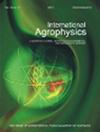Cambisol长期对照耕作对水稳性团聚体、大孔网络和土壤化学性质的影响
IF 1.7
4区 农林科学
Q2 AGRONOMY
引用次数: 0
摘要
摘要土壤的总体稳定性受到人为因素的影响,在世界各地都引起了人们的极大兴趣。本研究旨在量化免耕和常规耕作条件下土壤有机碳、总氮、总磷和总钾、土壤大孔参数和水稳性团聚体之间的相关性。两次施肥中,水稳性团聚体含量和大孔率均呈以下顺序增加:常规耕作(返茬)<常规耕作(除茬)<免耕(除渣)>免耕(回茬)。研究了总氮与土壤各因子的关系:土壤有机碳(r=0.65,p<0.05)、总磷(r=0.65,p<0.05),具有统计学意义。土壤有机碳和总氮与水稳定团聚体呈正相关(分别为r=0.81,p<0.01和r=0.68,p<0.05),而总钾与水稳定聚合体呈负相关。总磷与水稳性团聚体呈正相关(r=0.62,p<0.05)。免耕的土壤化学性质、大孔隙和水稳性团聚体在残留物和施肥中的平均值高于传统耕作。在不同耕作条件下,土壤有机碳、总氮和总磷对水稳性团聚体的形成都有积极的直接影响。由于我们的研究结果在很大程度上是基于相关性的,因此在未来的研究中,需要进一步探索土壤化学性质、水稳性团聚体和土壤孔隙形成之间的相互作用机制。本文章由计算机程序翻译,如有差异,请以英文原文为准。
Long-term contrasting tillage in Cambisol: effect on water-stable aggregates, macropore network and soil chemical properties
. Abstract. The aggregate stability of the soil is subject to the influence of anthropogenic factors and is of great interest all over the world. The research aimed to quantify the correlations between soil organic carbon, total nitrogen, total phosphorus, and total potassium, soil macropore parameters and water-stable aggregates under no-tillage and conventional tillage in Cambisol. The content of water-stable aggregates and macroporosity tended to increase in the following order: conventional tillage (returned residues) < conventional tillage (removed residues) < no-tillage (removed residues) < no-tillage (returned residues) in both fertilizations. The relationships between total nitrogen and various soil factors were investigated: soil organic carbon (r = 0.65, p < 0.05), total phosphorus (r = 0.65, p < 0.05), were statistically significant. Soil organic carbon and total nitrogen were positively correlated with water-stable aggregates (r = 0.81, p < 0.01 and r = 0.68, p < 0.05, respectively), whereas the relationship between total potassium and water-stable aggregates was negative. The relationship between total phosphorus and water-stable aggregates (r = 0.62, p < 0.05) was positive. The soil chemical properties, macropores and water-stable aggregates that were averaged across the residues and fertilizations were higher in no-tillage than in conventional tillage. Soil organic carbon, total nitrogen and total phosphorus all had a positive direct influence on the formation of water-stable aggregates under different tillage conditions. Since our results are largely based on correlations, the mechanisms of interaction between the soil chemical properties, water-stable aggregates and the formation of pores in the soil need to be explored further in future investigations.
求助全文
通过发布文献求助,成功后即可免费获取论文全文。
去求助
来源期刊

International Agrophysics
农林科学-农艺学
CiteScore
3.60
自引率
9.10%
发文量
27
审稿时长
3 months
期刊介绍:
The journal is focused on the soil-plant-atmosphere system. The journal publishes original research and review papers on any subject regarding soil, plant and atmosphere and the interface in between. Manuscripts on postharvest processing and quality of crops are also welcomed.
Particularly the journal is focused on the following areas:
implications of agricultural land use, soil management and climate change on production of biomass and renewable energy, soil structure, cycling of carbon, water, heat and nutrients, biota, greenhouse gases and environment,
soil-plant-atmosphere continuum and ways of its regulation to increase efficiency of water, energy and chemicals in agriculture,
postharvest management and processing of agricultural and horticultural products in relation to food quality and safety,
mathematical modeling of physical processes affecting environment quality, plant production and postharvest processing,
advances in sensors and communication devices to measure and collect information about physical conditions in agricultural and natural environments.
Papers accepted in the International Agrophysics should reveal substantial novelty and include thoughtful physical, biological and chemical interpretation and accurate description of the methods used.
All manuscripts are initially checked on topic suitability and linguistic quality.
 求助内容:
求助内容: 应助结果提醒方式:
应助结果提醒方式:


